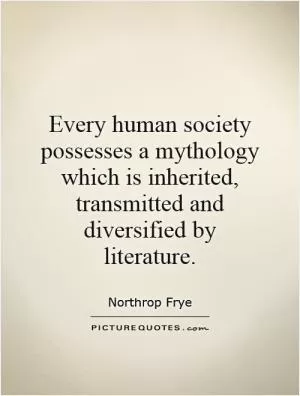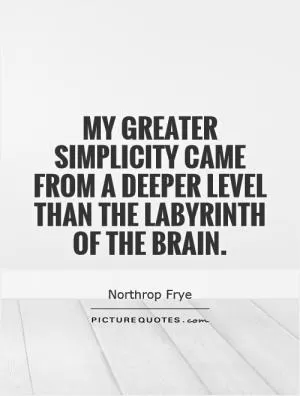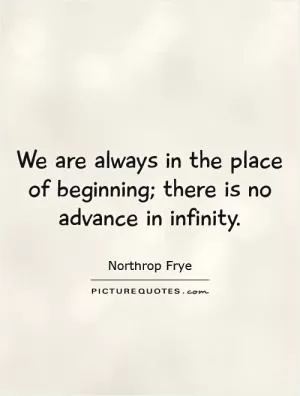The mark of a great writer: who sees his own time, but with a detachment that makes him communicable to other ages

The mark of a great writer: who sees his own time, but with a detachment that makes him communicable to other ages
Northrop Frye, a renowned literary critic and theorist, believed that the mark of a great writer is their ability to see and understand their own time, while also possessing a detachment that allows their work to resonate with readers across different ages. Frye argued that great writers have a unique perspective that enables them to capture the essence of their era, while also transcending the limitations of time and space.Frye's concept of the great writer as someone who is both rooted in their own time and yet able to transcend it is exemplified in the works of many literary giants. For example, William Shakespeare, often considered one of the greatest writers in the English language, wrote plays that were deeply rooted in the political and social context of his time, yet continue to be relevant and meaningful to readers centuries later. Shakespeare's ability to capture the universal themes of love, power, and ambition in his works has ensured his enduring popularity and relevance.
Similarly, the novels of Jane Austen, another writer admired by Frye, are set in the genteel society of early 19th-century England, yet her keen observations of human nature and social conventions have made her works timeless classics that continue to be read and studied today. Austen's ability to create vivid characters and witty dialogue that resonate with readers from different eras is a testament to her skill as a writer who sees her own time with detachment.
Frye's concept of the great writer as someone who is able to transcend their own time and speak to readers across different ages is a powerful reminder of the enduring power of literature. Great writers have the ability to capture the essence of their era while also tapping into universal truths that resonate with readers of all backgrounds and time periods. By seeing their own time with detachment, great writers are able to create works that are not only relevant to their contemporaries but also have the potential to speak to future generations, making them truly timeless.












 Friendship Quotes
Friendship Quotes Love Quotes
Love Quotes Life Quotes
Life Quotes Funny Quotes
Funny Quotes Motivational Quotes
Motivational Quotes Inspirational Quotes
Inspirational Quotes